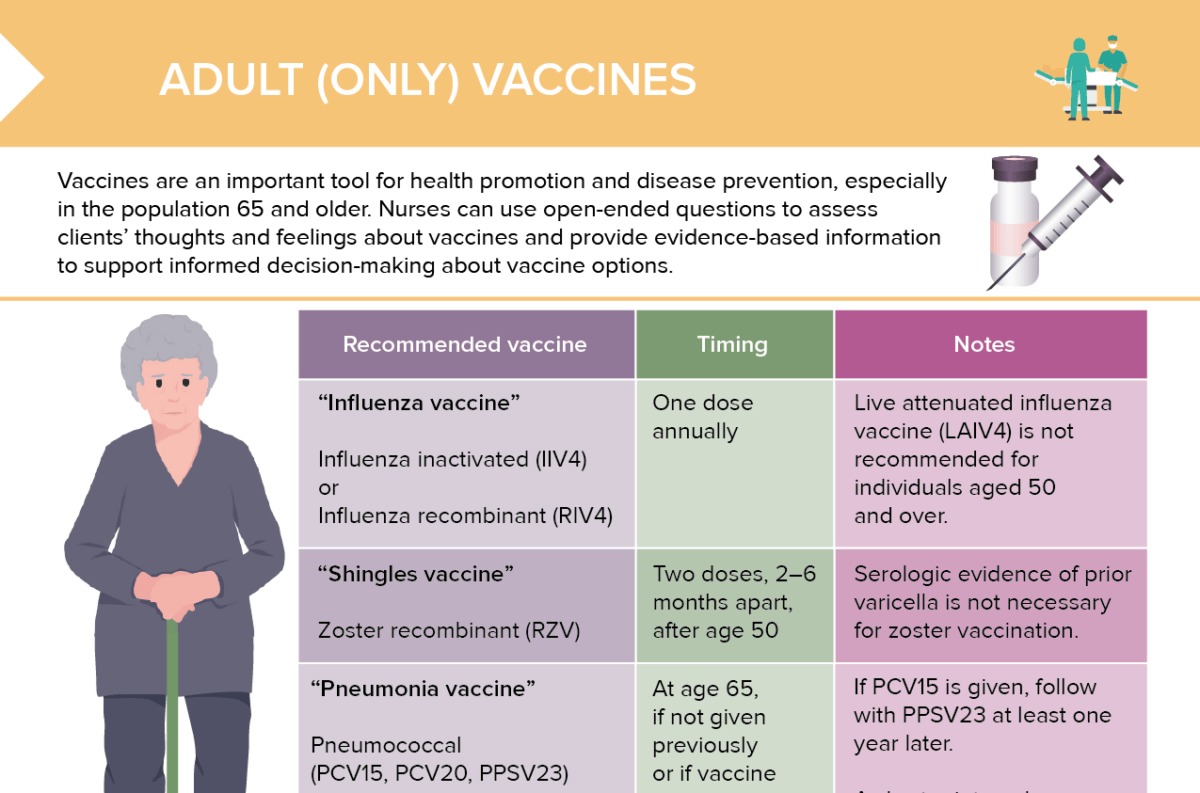Recommended vaccines for adults
Influenza vaccine
Vaccine: influenza inactivated (IIV4) or influenza recombinant (RIV4)
Timing: one dose annually
Live attenuated influenza vaccine (LAIV4) is not recommended for individuals aged 50 and over.
Shingles vaccine
Vaccine: zoster recombinant (RZV)
Timing: two doses, 2–6 months apart, after age 50
Serologic evidence of prior varicella is not necessary for zoster vaccination.
Pneumonia vaccine
Vaccine: pneumococcal (PCV15, PCV20, PPSV23)
Timing: at age 65, if not given previously or if vaccine history unknown
If PCV15 is given, follow with PPSV23 at least one year later. A shorter interval may be considered for immunocompromised individuals.
Recommended vaccine injection site
The deltoid is the recommended injection site for adult vaccines.
Common vaccine side effects
Symptoms of vaccine side effects usually last 1–2 days and are mild. Clients should contact their medical provider if symptoms persist, or if more severe symptoms occur.
Common side effects include:
- Drowsiness
- Chills
- Pain at injection site
- Headache
- Muscle pain
- Nausea
- Heat
- Fatigue
